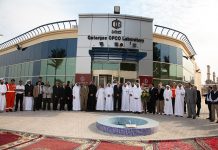ISLAMABAD, Dec. 23 — Pakistanis have seen another bloody year as there has been no let-up in terror attacks in 2012, taking the lives of hundreds of people, mostly civilians.
Days before the year-end, a deadly Taliban suicide attack killed a senior minister in the country’s northwest, dashing hopes for an early end to violent extremism in 2013 in Pakistan, where officials say terrorism has claimed lives of nearly 40,000 people and 5000 security men since Pakistan has joined the controversial US-led coalition in 2001.
Taliban kept on deadly assaults the whole year including the attacks on the country’s major aeronautical complex in eastern Punjab province in August and Pakistan Air Force base inside an international airport in northwest in December.
In April heavily armed Taliban attacked a prison in the northwestern Bannu district and freed some 400 inmates, including the main suspect of attacks on former President Pervez Musharraf.
Taliban attack on 14-year-old schoolgirl, Malala Yousafzai, in Swat valley, who was advocating for girl’s education, shook entire Pakistan and the attack was widely condemned across the world.
Besides Taliban attacks in 2012, which killed hundreds of people across the country, political and sectarian killings continued the whole year in the port city of Karachi and southwestern Quetta. Banned extremist Sunni and Shiite groups were suspected to be behind these attacks, including target attacks on buses carrying Shiite pilgrims to Iran.
Well-organized attacks on polio vaccination teams in the country by suspected militants in Karachi and Khyber Pakhtunkhwa also raised concern over the fate of millions of children who need anti-polio drops. Pakistan is one of three countries, along with Afghanistan and Nigeria, where polio is still endemic, according to the World Health Organization.
On one hand the Taliban continued audacious attacks and on the other U.S. drones rained missiles on Pakistan’s Waziristan tribal region the whole year despite Islamabad’s public condemnation of the attacks, which officials say killed civilians.
Pakistan plunged into varieties of crises including the worst energy shortage in summer, which led to hours of power outage and riots. Pakistani rupee substantially devalued. In December one dollar was exchanged at nearly 100 rupees for the first time in the country’s history. High fuel and CNG prices added to the economic hardships of the people.
The ruling Pakistan People’s Party ended the years of tension with the highest judiciary by sending a letter to the Swiss authorities for the reopening of graft cases against President Asif Ali Zardari in November. But the development came after the Supreme Court disqualified Yusuf Raza Gilani as prime minister in June after his refusal to accept the court’s repeated orders for dispatching the letter.
Pakistan and the United States succeeded to remove irritants in bilateral relationship in July when Islamabad reopened its supply routes for NATO troops in Afghanistan, after the U.S. apologized for the killing of 24 Pakistani troops in a U.S. air strike in November 2011. This month, Washington announced to release nearly 700 million U.S. dollars to Pakistan from the Coalition Support Fund after suspension of some two years. The move was viewed as revival of military ties between the two countries.
Pakistan’s relations with India has also seen substantial improvement in 2012 as the two uneasy neighbors signed the much- anticipated relaxed visa regime and Pakistan granted the status of the Most Favored Nation to India, that had been long due. Improvement in ties also led to revival of bilateral sports ties as Pakistan’s cricket team has now reached India for a series, the first in five years.
Despite some minor issues still remain unresolved, Pakistan and Afghanistan also moved forward. Islamabad freed several Afghan Taliban prisoners on Kabul’s request and Afghanistan welcomed the move as a “first practical step” by Pakistan towards peace and reconciliation process in the war-shattered country.
Pakistan will be heading towards parliamentary elections in 2013 with high hopes that the new government will take some urgent steps to deal with the worst energy crisis and sky rocketing prices to give a sigh of relief to the public. Relationship with the U.S. and Afghanistan will also be important for Pakistan’s role in the political solution to the Afghan problem in view of the withdrawal of foreign forces.



















